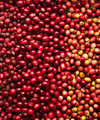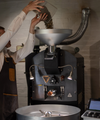Recent Post
Coffee's Early History: The 15th and 16th Centuries.
Jun 13, 2023
Single Origin Love
Jun 12, 2023
3 Simple Tips For Making Perfect Coffee
Jan 11, 2023
Tips for Finding the Best Coffee Makers
Nov 30, 2022
Cleaning Your All Important Coffee Machines
Nov 20, 2022
Choosing good coffee beans
Nov 11, 2022
Archive
- September 2023
- June 2023
- January 2023
- November 2022
Tags

Alternatives To Decaf Coffee
Jan Gerlis
Jul 05, 2022
So you are a coffee lover, and you have all the gadgets and gizmos to make that perfect cup. You know all the different coffee types available and your idea of a perfect Sunday morning is to relax with your favorite newspaper and a giant mug of a classic Columbian brew.
So what happens when for health reasons you are told to cut down on the coffee? There are so many reasons these days why you might need to cut down on your caffeine intake, perhaps you are pregnant, or suffering from a heart condition that makes excessive caffeine consumption unwise. As a coffee connoisseur the idea of drinking decaf leaves you cold, but when it is a choice between your health and your coffee you probably don't have much choice. To make your transition easier, there are few things to consider before you stock up on decaf beans.
Be prepared to spend a little extra on high quality decaf to get a decent taste. There are various processes used to remove caffeine from coffee beans and the most economical uses chemicals to accomplish this. Although the chemicals are washed away, small traces can remain that impact the taste of the resulting brew. Some of the good coffee flavor can also be washed away with the caffeine.
Some more expensive decaf beans go through the Swiss method, where the beans are heated with water and then passed through activated charcoal, which bonds with the caffeine, leaving the beans with reduced caffeine but the majority of their original taste.
Another, more recent addition to these processes is known as Hevla. Coffee beans are steamed at high pressure and the caffeine removed, without any real impact on the flavor. The use of this process is becoming more widespread, but is unlikely to be used on the standard decaf for sale in your local supermarket.
As well as checking the manufacturing process when buying decaf coffee, you should also have a careful look at the caffeine content. You may think you have been clever enough to find a great decaf that tastes just like regular coffee, for a reasonable price. You may in fact find that the caffeine content is only slightly reduced, hence the taste, and you can probably do almost as much damage with this as with a regular brew. Also beware of drinking decaf coffee when you are out and about. Because the same machines are used to make decaf as regular coffee, you might unintentionally be getting a large dose of caffeine anyway.
If you really can't stomach changing to decaf, you could just reduce the amount of coffee that you drink and really savor those occasional cups. You could also switch to a darker roast such as an Italian roast, popular for espresso making, which is naturally low in caffeine because most of it has burnt off during the roasting process.
So don't despair when your doctor gives you the bad news. Just because you have to cut down on caffeine, this does not mean that you have to give up your coffee altogether.
← Older Post Newer Post →












